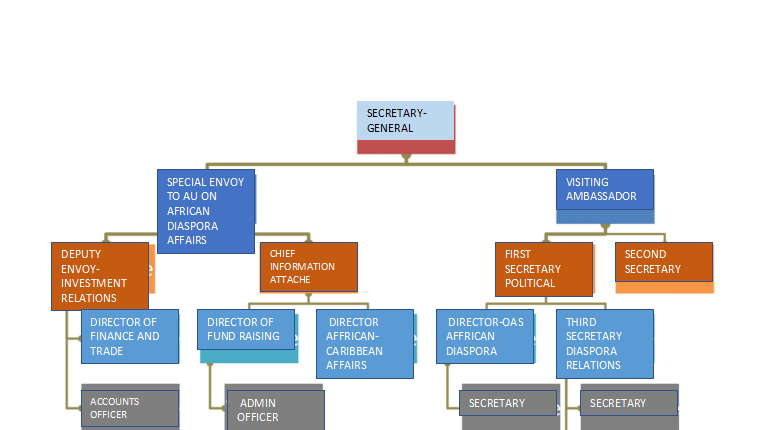Caribbean-OAS African Diaspora Affairs

This article is about emigration from Africa in historic times. For prehistoric human migration, see recent African origin of modern humans. For recent migration, see emigration from Africa.
| African Diaspora | |
| Total population | |
| c. 210 million | |
| Regions with significant populations | |
| Brazil | 82,277,333, including mixed people |
| United States | 46,350,467 including mixed people |
| Haiti | 9,925,365 |
| Colombia | 4,944,400, including mixed people[11][12][13] |
| France | Approximately 3.3–5.5 million (5–8% of the French population) |
| Venezuela | 3,156,817 |
| Jamaica | 2,731,419 |
| United Kingdom | 1,904,684 |
| Mexico | 1,386,556 |
| Canada | 1,198,540 |
| Dominican Republic | 1,138,471 |
| Cuba | 1,126,894 |
| Ecuador | 1,120,000 |
| Italy | 1,100,000 |
| Spain | 1,045,120 |
| Puerto Rico | 979,842 |
| Peru | 828,841 |
| Germany | 817,150 |
| Trinidad and Tobago | 452,536 |
| Australia | 380,000 |
| Barbados | 270,853 |
| Guyana | 225,860 |
| Suriname | 200,406 |
| Romania | 145,600 |
| Russia | 120,000 |
| Grenada | 101,309 |
| Languages | |
| Lingua franca: English (American and Caribbean), French (Canadian and Haitian), Haitian Creole, Spanish, Portuguese, Papiamento, and Dutch | |
| Religion | |
| Christianity, Islam, Traditional African religions, Afro-American religions | |
- The African diaspora consists of the worldwide collection of communities descended from native sub-Saharan Africans or people from sub-Saharan Africa, predominantly in the Americas. The diaspora has continued for millennia, but historically,[ ethnographers, historians, politicians and writers have used the term particularly to refer to the descendants of the West and Central Africans who were enslaved and shipped to the Americas via the Atlantic slave trade between the 16th and 19th centuries, with their largest populations in Brazil, the United States and Haiti. Some scholars identify “four circulatory phases” of this migration out of Africa. Prior to the Atlantic slave trade, Arab traders took even more slaves from other parts of Africa, selling them to markets in North Africa and the Middle East (Western Asia).
The phrase African diaspora gradually entered common usage at the turn of the 21st century. The term diaspora originates from the Greek διασπορά (diaspora, literally “scattering”) which gained popularity in English in reference to the Jewish diaspora before being more broadly applied to other populations..
Less commonly, the term has been used in scholarship to refer to more recent emigration from sub-Saharan Africa. The African Union (AU) defines the African diaspora as consisting: “of people of native African origin living outside the continent, irrespective of their citizenship and nationality and who are willing to contribute to the development of the continent and the building of the African Union”. Its constitutive act declares that it shall “invite and encourage the full participation of the African diaspora as an important part of our continent, in the building of the African Union”.
